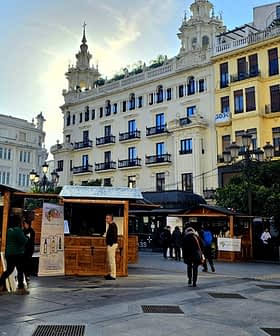Despite ongoing efforts by the Spanish government to lower food prices, Spanish consumers are not impressed.
Last month, the Spanish Council of Ministers extended the value-added tax exemption (VAT) for staple foods and olive oil until October. From that point, VAT will rise to the new rate of two percent until the end of the year and return to four percent starting in 2025.
“Why bother?” quipped one social media user named Neme. “We hate that you lower the VAT to zero percent only to raise it again in 90 days.”
See Also:Open Source AI Model Accurately Predicted Olive Oil Prices“What they are not saying is that it’s only three months without VAT,” added fellow social media user Borja. “In October, it returns, and in December, the VAT will increase even more as has already been approved by the government.”
According to data from Spanish broadcaster RTVE, the price of a liter of extra virgin olive oil in supermarkets has surged from €3.45 in February 2021 to €9.46. Removing the five percent VAT was expected to lower the price by approximately €0.50 per liter.
National Statistics Institute data demonstrated that olive oil has experienced the single most significant price increase of all products tracked over the last year, rising by 63 percent.
Consecutive years of extreme drought and high spring temperatures in 2022 and 2023 resulted in historically poor harvests across Spain’s leading olive oil-producing regions.
Rising energy, fertilizer, phytosanitary products and packaging material prices have also put upward pressure on olive oil prices.
The dramatic reduction in supply combined with higher production prices and steady demand resulted in olive oil prices at origin hitting record highs in mid-January.
Indeed, data from the Spanish Ministry of Agriculture, Fisheries and Food shows the price of olive oil has increased by 272 percent since September 2020.
Rising prices and decreased availability have caused Spanish consumers to start changing their behavior. Many middle-class Spaniards are buying lower grades of olive oil in smaller formats and using it more sparingly. Some have even abandoned the category.
“I’ve moved on to other cooking oils,” confirmed social media user Jean.
Historically, a ten percent VAT was applied to olive oil, which the government did not consider a staple.
However, this started to change in January 2023, when the government reduced olive oil’s VAT from ten percent to five percent, while the VAT for staple foods was slashed from four percent to zero. Olive oil was later recategorized as a staple food, and VAT was eliminated.
Despite assurances from the Spanish government that unscrupulous businesses would not simply be able to keep prices at the same level, pay lower taxes and keep the extra money, not all Spanish social media users are convinced.
“These types of measures are sterile since distributors retain the products in their warehouses, waiting for prices to rise and obtain usurious profits,” wrote a social media user named Pilot. “The solution would be to cap prices.”
However, in a speech made in July, Minister of Social Rights, Consumer Affairs and 2030 Agenda Pablo Bustinduy assured that he would be vigilant in “ensuring that the reduction in VAT is fully passed on to consumers and will in no way feed the profit margins of retail distributors.”
Soledad Serrano Lopez, the director general of Finca Duernas, told the Olive Oil Times that removing and permanently lowering VAT on olive oil would not significantly affect Spanish households’ purchasing decisions regarding extra virgin olive oil.
“People probably won’t start buying more extra virgin olive oil just because of this,” she said. “The main reason to buy it is for the quality, not the price.”
Some social media users agreed with Serrano Lopez’s conclusion but for different reasons. One anonymous user wrote, “lowering VAT after a 70 percent increase in the price is a joke.”
Officials at the Bank of Spain have indicated that high olive oil prices are one reason inflation, especially food inflation, remains higher in Spain than in many other European countries.
While sector observers expect olive oil prices at origin to fall as preliminary signs point to a harvest exceeding one million tons, it is harder to know when retail prices will begin to reflect this drop.
In the meantime, Spanish social media users continue to vent their frustration.
“All food and basic essentials should not pay VAT,” wrote Borja. “It is the most unfair tax of all.”








